More information
Thoughts of former students and friends
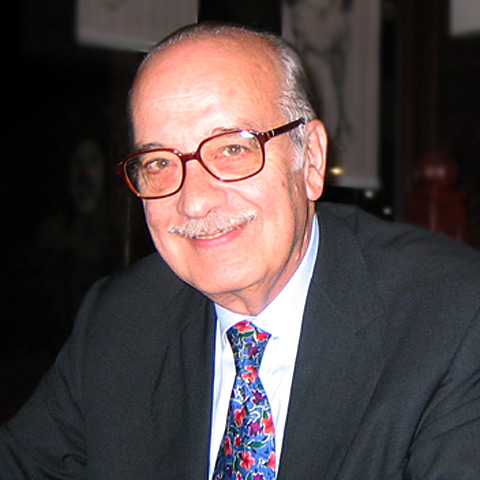
— Giuseppe Benagiano MD, PhD, FACOG(hon), FRCOG (ad eundem), Hon Sen (Szeged), Professor Emeritus, Sapienza, University of Rome
“Egon Diczfalusy is an eminent scientist, a humanitarian, a visionary and a man who - throughout his long life cared for the underprivileged. His life has been dedicated as much to science and research as to improving the reproductive health of women and men of the world. For me, Egon Diczfalusy has been a figure so important as to be second only to my father. I owe to him my introduction to research, to the world of the United Nations and to the intricacies of international public health.”
(Geneva, Switzerland, on the 16th of July 2010)
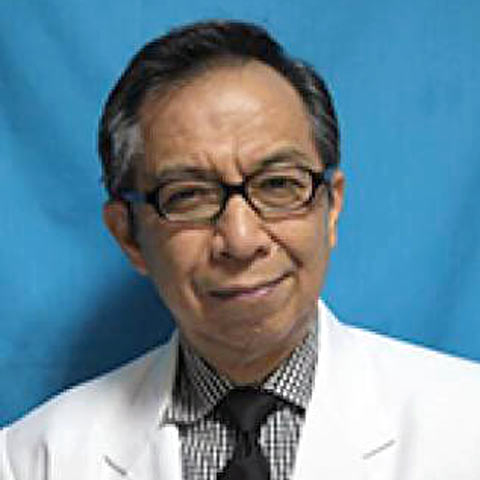
— Biran Affandi MD, PhD, Professor of Obstetrics-Gynecology at University of Indonesia, Jakarta
“Professor Egon Diczfalusy represents a father of a scientific community which has been growing and developing by itself since he graduated as a doctor. Today the tree of scientific community- consists of (mainly) his students – and has been matured enough to dedicate its fruits to the world. Professor Egon Diczfalusy is a father, a teacher, a pioneer and a friend of medical scientists.”
(Jakarta, Indonesia, on the 16th of July 2010)
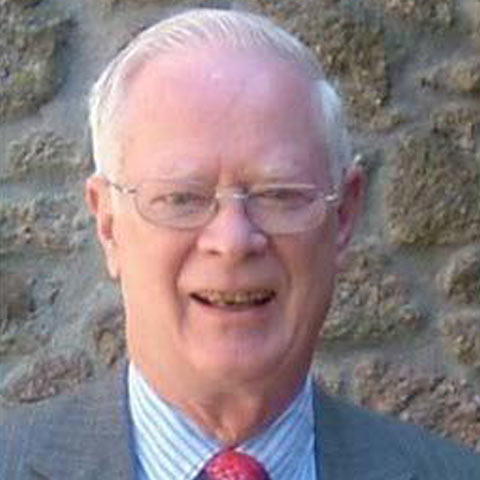
— Ian D. Cooke MD, PhD, Professor Emeritus at University of Sheffield, UK Director of Education International Federation of Fertiliy Sciences
“«It is difficult in 10 words, so here are more. An innovative scientist and a cultured man who first described the functioning of the human feto-placental unit» It is quickly done, perhaps the best way to highlight the essence of the man as one remembers him and his impact. Best wishes, Ian”
(Sheffield, UK, on the 16th of July 2010)
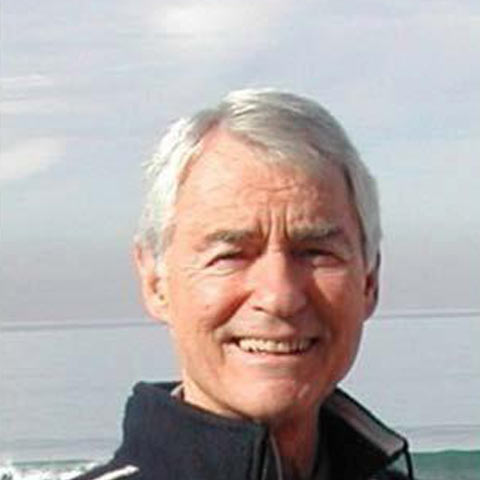
— Ronald J. Pion MD, PhD, Clinical Professor of Obstetrics-Gynecology UCLA School of Medicine
“With fond memories of the Hormone Laboriet @ Karolinska Sjukhuset: In my second year of a USPHS fellowship (July 1963) under the auspices of the department of OB-GYN at the UCLA School of Medicine I was offered an opportunity to study under the direction and mentorship of Dr. Egon Diczfalusy. I had completed a year’s study of androgenic steroids with Dr. Hans Zimmer at UCLA. To further prepare me as a research scientist in academics it was suggested that I pursue additional research in estrogens. Egon’s lab was renowned for the work that he guided in evaluating the steroid milieu and relationship between the maternal/placenta/fetal units. My early work in association with Dr. Bob Jaffe and laboratory staff –Berit and Ulla - involved analyzing blood and urine samples that traced the relationship of injected radioactive isotopes into the identified umbilical cord vessels at the time of therapeutic abortion. Results pointed us in the direction of analyzing pregnenolone/progesterone pathways – an opportunity that we had not anticipated pursuing. Dr. Diczfalusy’s intellectual curiosity permitted our exploration of these precursors and their relationships. The work environment among the other research scientists gathered from around the world was stimulating and Egon’s passion for seeking new knowledge was «contagious». My year’s experience remains a highlight of my career. Egon is the «titular» G-dfather to our second child.....Dana Laura..... Born December 15 1963 at the Karolinska Sjukhuset Egon is my «heroic» mentor-learning model for me to emulate.”
(Los Angeles, USA, on the 18th of July, 2010)
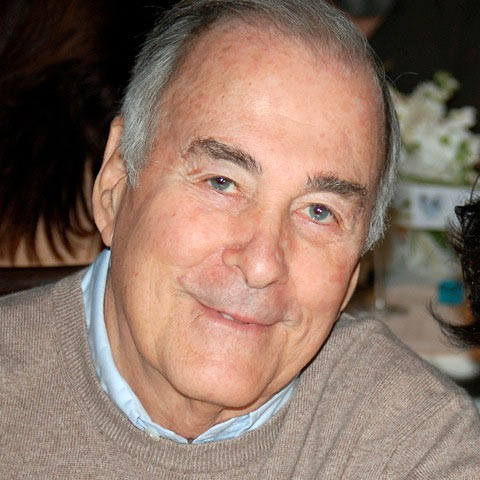
— Paul Brenner MD, PhD, Professor and Vice Chairman Department of Obstetrics and Gynecology Keck School of Medicine the University of Southern California
“Professor Diczfalusy was very important in directing my research efforts early in my career. Even more than this, as a mentor he taught me the moral and ethical standards to be a success in life. He was much more than a remarkable scientist, he was a role model and in many ways a «father» figure. In ten words: scholarly, brilliant, kind, professional, dedicated, unselfish, modest, supportive, leader and charismatic.”
(USA, on the 18th of July 2010)
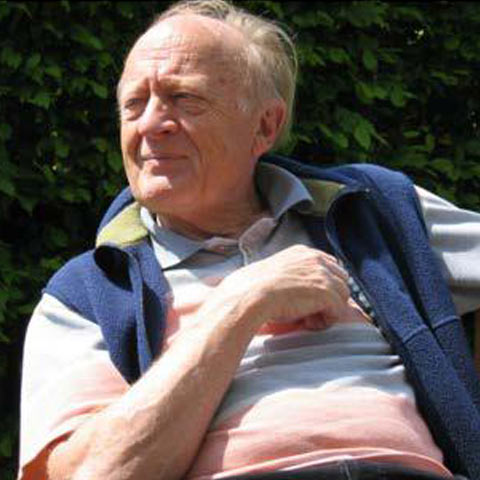
— Ivo Brosens FRCOG, Emeritus Professor of Obstetrics and Gynaecology at the Catholic University Leuven, Belgium
“n the first place it is a great honor for me to be part of the close friends of Professor Egon Diczfalusy. My admiration for Egon started in the late 1960s when he and his collaborators published in Acta Endocrinologica the classical studies leading to the concept of the foeto-placental unit. At that time I was a resident at the Catholic University of Leuven in Belgium and involved in the investigation of the role of the placental bed spiral arteries in obstetrical syndromes like preeclampsia and fetal growth retardation. The work of Egon has been the basis of our current understanding of what can be called the maternal-placental- foetal unit. In the late 1990s when I was involved in ISGE Training program in gynecological endoscop, I had the opportunity of meeting many of his friends in Hungary and Romania and learned how important it is to go and meet other colleagues in their country. For me is Egon the outstanding person who never stopped learning and teaching.”
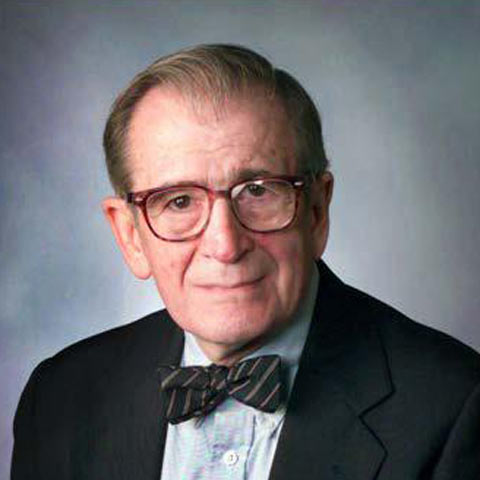
— Philip Troen MD, PhD, Professor of Medicine University of Pittsburgh School of Medicine, Assistant Dean for Medical Student Research, Physician-in-Chief Emeritus Montefiore University Hospital.
“Dear Egon, I am very pleased to have this opportunity formally to acknowledge again the great opportunity you gave me and the important experience I had at the Karolinska with you. Here are my brief responses to the request by Cristi: I met Egon at a Laurentian Hormone Conference following the recommendation of Al Albert with whom several years previously I had an endocrine fellowship at the Mayo Clinic including research on the endocrine function of the human placenta. Egon was kind enough to invite me to join him in Stockholm. This invitation allowed me to receive a Guggenheim Fellowship to make the trip to Stockholm feasible. The time (1960-1961) spent with Egon in his laboratory represented a major event in the development of my academic career. He provided me with the opportunity, encouragement and support (including space for my 100 tube countercurrent distribution machine) to establish myself further as a productive endocrine researcher. An important aspect of my time in the Hormone Laboratory with Egon was the discipline of analyzing the data and preparing the paper. Particularly rewarding was the writing with him of our major review, «Endocrine Functions of the Human Placenta», for Vitamins and Hormones. His friendship to my family and me was invaluable in making our stay in Stockholm both pleasant and successful. I believe the following words capture the essence of this remarkable man: Dedicated, disciplined, focused; Creative, thorough, organized; Supportive, thoughtful; Literate, intelligent. Egon, Your picture with its inscription still hangs next to one of Al Albert in my office. My sincere thanks and appreciation. Best wishes, Phil.”
(Pittsburg, USA, on th 19th of July 2010)
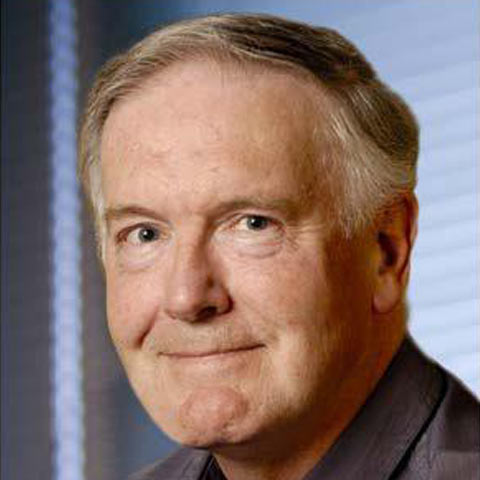
— David Robertson MD, PhD, Principal Research Fellow NHMRC Associate Professor of Obstetrics and Gynecology, Monash University; Prince Henry's Institute of Medical Research Melbourne, Australia
“I was a research fellow (initially a Ford Foundation Fellow) in Professor Diczfalusy’s laboratory from October 1971 until February 1979 when I returned to Australia. This was a very important and by far the most enjoyable time in my research career. I learnt a lot about undertaking research. Professor Diczfalusy emphasized the need for method development as an essential prerequisite in undertaking research as well as the need for project planning with sufficient power to obtain a clear result. In addition, the research should have tangible health relevance even if it is long term. These lessons I have employed throughout my research life. The enjoyable aspects relate to the calm and stable laboratory atmosphere where strong personal relationships between researchers from many countries and staff were fostered. Professor Diczfalusy was my supervisor and mentor during my PhD candidature whose support I highly valued. We published over 20 papers together. In ten words:A statesman with a world vision, an excellent scientist, a fair and reasonable man.”
(Melbourne, Australia, on the 20th of July 2010)
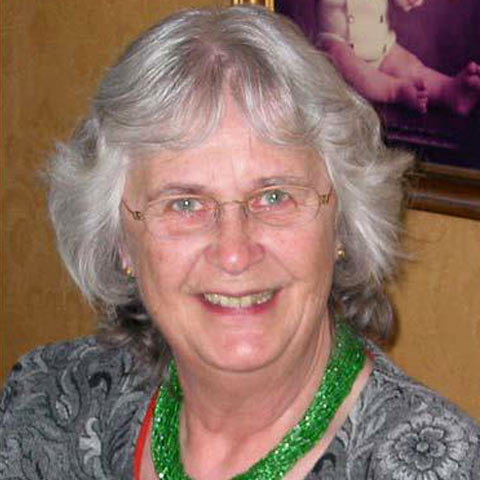
— Wanda Holmberg
“He is my stepfather and the man who gave my mother a happy life. He also shows that you need not be old because you are aged. In ten words: Dedicated to science and friends, generous, humorous, caring, multilingual globetrotter, music and art lover.”
(Norway, on the of 20th July 2010)
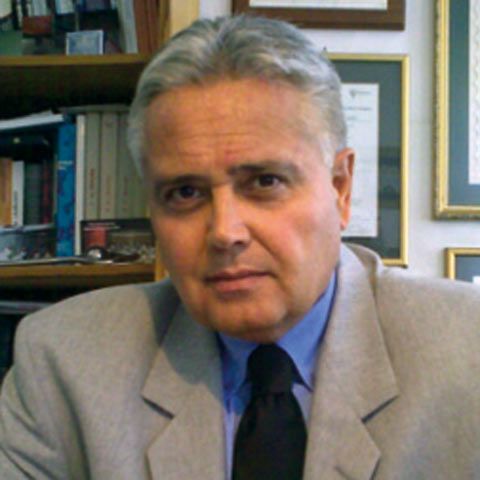
— Petru Chitulea MD, PhD, Associated Professor and Consultant, Head of Department of Gynecological Surgery at the University County Hospital Oradea, Romania.
“«The Power of Ideas.» Medicine has represented, throughout the history of humankind, a branch of science profoundly anchored in humankind and in the life of the communities, but also of the human culture, in general, of all times.The social role of the doctor, as a holder of all the information connected with the human being’s physiological and psychological needs, as a healer of physical suffering, has represented an important mark in all societies, starting with the dawns of human history until today. The history of medicine, from the healing shaman to the ultra-specialized doctor nowadays, has been interspersed with a series of technical, pharmacological, anatomo-structural, physiopathological discoveries, but, especially, with the appearance of some new concepts, innovating ideas, which propelled it. If technical and, in general, material discoveries were relatively easily accepted by the members of the medical corpus, the new concepts were always met with acerb opposition, an opposition which was worth a better cause. Throughout history we find examples of ideas, new in their time, ideas that we nowadays consider self-explanatory, which have become common places of medical thinking, but which in their time caused an uncommon opposition both from the members of the fellowship, and from society, in general. Thus, the study of anatomy based on dissection, culminating with Andre Vesale’s «De humani corporis fabrica», the concept of vaccination against infectious diseases, whose promoter was the English doctor Jenner, Semmelweis’ concepts of asepsis and antisepsis, Pasteur’s discovery regarding the microbial aetiology of infectious diseases, the concepts of holistic and psychosomatic medicine, Freud and Jung’s theories, the concept of family planning and contraception, to Egon Diczfalusy’s concept of the feto-placental unit, have met an opposition sometimes active, other times passive, but always consistent. The discovery of the fact that pregnancy is not represented by the foetus together with its «annexes», that the foetus, the placenta, the umbilical chord and the amnios form a unitary whole, all of them being parts of the fecundated human egg, and that none of them has any sense in the absence of the others, having an equal importance in the accomplishment of the future human being that is going to be born, shocked the community of the obstetricians, despite evidence. Formulated in 1970, the idea of the feto-placental unit, although it is the expression of an elementary logic, has not been totally adopted even after 40 years, medical students being taught even now, in some universities, about «the foetus and its annexes». Despite all opposition to new ideas and concepts, medicine has progressed in the last two millennia, exactly because of them. The great medical progresses, which changed the face of medicine, have always been connected to the implementation of the new concepts, despite the initial opposition they were subjected to. «When an idea corresponds to the necessities of the age, it stops belonging to those who invented it and becomes more powerful than the power-holders and it becomes a common property of humankind.» - E. Diczfalusy , 2002. That is why I consider that accepting the title of Doctor Honoris Causa of the University of Oradea, by PhD Professor Emeritus Egon Diczfalusy, represents a great honour for our university, for all the members of the academic community, and last but not least, for all the members of the medical corpus in our city and county. Professor Diczfalusy’s connection with Oradea started in 1994, when he responded to an invitation made by PhD Professor Emeritus Academician Ioan Munteanu, at the time the President of the Romanian Society of Obstetrics-Gynaecology, by PhD Prof. Eng. Teodor Maghiar, the founder rector of the University of Oradea, and also by me, as the President of the Romanian-Hungarian Congress of Obstetrics-Gynaecology (May 1994), and when he was awarded the title of Honorary Member and the medal of the Romanian Society of Obstetrics-Gynaecology. Starting then, professor Diczfalusy’s connection with the Romanian gynaecologists has been a constant, materialized through multiple meetings at scientific manifestations in our country, at scientific manifestations all over the world, where he always displayed, sincerely and warmly, his friendship and appreciation both for his Romanian fellows, and for the Romanian medical education. Throughout all these years, I have had the privilege of knowing closely the professor Diczfalusy’s exceptional personality, of coming into contact with his exhaustive scientific erudition, with his encyclopaedic culture, and last but not least with his fine and vivacious wit. As a matter of fact, all the great scientific personalities of our specialty, whom I have had the opportunity of meeting, have always expressed a unanimous admiration and sympathy. That is why Professor Egon Diczfalusy’s return to Oradea, on the occasion of being awarded the title of Doctor Honoris Causa of our university, will always represent a glory, a memorable and bright landmark in the history of the higher education in Oradea and also of the entire Romanian scientific community.”
(Oradea, Romania, on the 21th of July 2010)
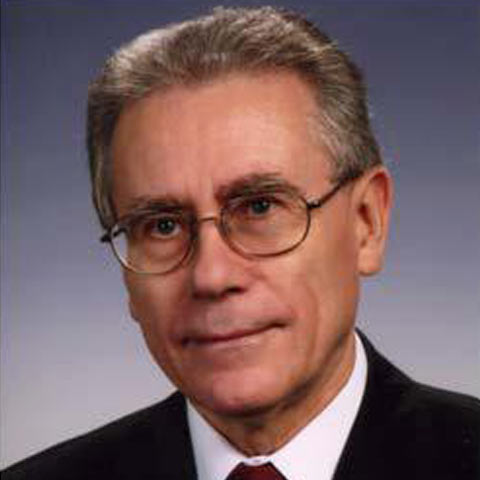
— Adam Balogh MD, PhD, Associate Professor, Consultant, Osteoporosis Clinical Management and Research Unit Department of Obstetrics and Gynecology University of Debrecen
“«Thoughts about Professor Egon Diczfalusy» It is extremely difficult to describe Professor Egon Diczfalusy because of the complexity of his personality. It would be too simple to say, he has been a renaissance man. He is equally knowledgeable of the antiquity, the pre-Columbian art, and the controversial modern age. He has been showing strong sympathy towards Asian people and cultures. I guess, not many of European scientists made more friends, and more devoted ones there. I also recognized his deep affinity to Latin people all over the World, perhaps for their rich history, charming languages, their enjoyment of life and elegance, as I also witnessed him having been working hard for building friendly professional bonds among scientist of Central-Eastern Europe. Doing so I felt a hint of his hope for better relations of these nations after centuries of troubles. He has been a real Citizen of World in a good sense proudly, and with perceived duties of this status. He believed in the mission of science in making a better life for mankind. He appreciated the progress of science that has taken place in the world during his life to date. But he warned us watchfully of the evil trends of exploitation, social and gender inequity, continuing enmities, series of wars, their vast expenses and related human suffering throughout the world. Characterizing Professor Egon Diczfalusy in 10 words / statements. A limited view by one of his past student and present friend. These adjectives are listed from outside to inside, as I imagine him: 1. Elegant; 2. Intellectual; 3. Wit; 4. Multilingual; 5. Hard working (still); 6. Responsible; 7. Merciful; 8. Sentimental; 9. Alert to problems of individuals and evils of our Merry New World; 10. Has a sixth sense. Collected and compiled by heart by Dr. Adam Balogh.”
(Debrecen, Hungary, on the 26th of July 2010)
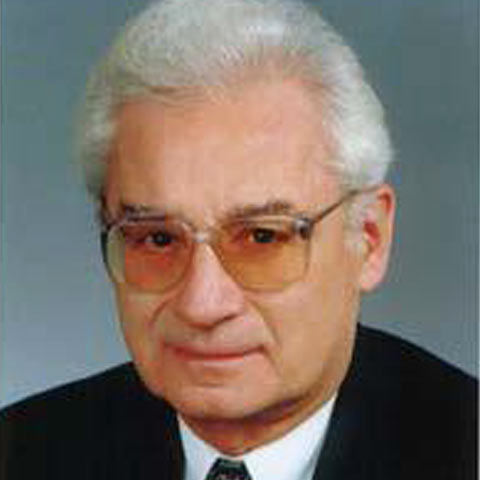
— Laszlo Kovacs MD., PhD., Professor emeritus, DSc., FRCOG, Szeged University
“I met Professor Diczfalusy and his wife Ann the first time in 1973 during the FIGO Congress in Moscow. In the past almost four decades we have met many times in Hungary and all over the world, and during these years a close friendship developed between us. I look at Egon as my master from whom I have received very much help and advice in the activities of the Szeged WHO Collaborating Centre of Research in Human Reproduction as its Director. In the 1990-ies we have organized several international symposia with his very effective assistance. The «Egon Diczfalusy Lecture Award» that I received in 1999 in Stockholm is one of my most respected medals. Professor Diczfalusy is highly respected in Hungary as a famous Hungarian-born scientist. He is honoris causa doctor of the Szeged University, invited member of the Hungarian Academy of Sciences, h.c. member of the Hungarian Society of Obstetricians and Gynecologists, invited member of the Editorial Board of the Hungarian Journal of Obstetrics and Gynecology. In this year (2010) Professor Diczfalusy will have his 90th birthday. It will be celebrated in his excellent health and activity. I also wish to congratulate him, and wish still many active years and good health! My short character-painting: Excellent scientist, fascinating speaker, effective organizer, hearty supporter of young researchers, warm-hearted friend and a real cosmopolitan.”
(Szeged, Hungary, on the 28th of July 2010)
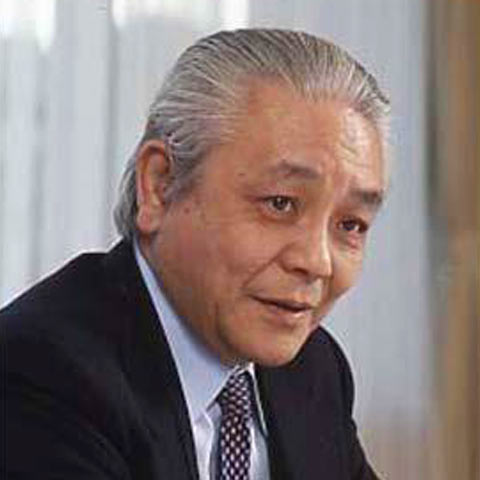
— Takeshi Aso Professor emeritus, Tokyo Medical and Dental University
“Professor Egon Diczfalusy input me the spirit and mission for a medical scientist. 10 words to define Professor Egon Diczfalusy: Source of wisdom and origin of energy for activities.”
(Tokyo, Japan, on the 6th of August 2010)

— Elisabeth Johannisson MD, PhD, FIAC Life member of the American Society for reproductive medicine
“In a few words I would like to say that Prof Diczfalusy has been my only and most important mentor in my entire professional life. I started to work in Prof. Diczfalusy's research group already in the early 1960 and my first publication appeared already in 1961 in collaboration with Egon Diczfalusy and Carl Gemzell («Effect of a single injection of human pituitary follicle stimulating hormone on urinary estrogens and vaginal smear in amenorrheic women» Journal of clinical endocrinology vol; 21961) Finally let me say that Prof. Diczfalusy introduced me to the world of the spirit of international research in the field of human reproduction and for me this collaboration has resulted in more than 100 publications (fetal endocrinology the development of the feto-placental unit and the human endometrium). He stimulated a great number of fellows all over the world and he also had a great influence in the development of the WHO programme of research in human reproduction. Last but not least let me mention his creation of the Egon and Ann Diczfalusy foundation for supporting research in reproductive health. The Foundation was introduced in Szeged Hungary in 2008 and it is continually developing. I am convinced that the activity of Prof. Diczfalusy's creative work, his initiatives and his look for the future will continue.”
(Stockholm, on the 7th of August 2010)
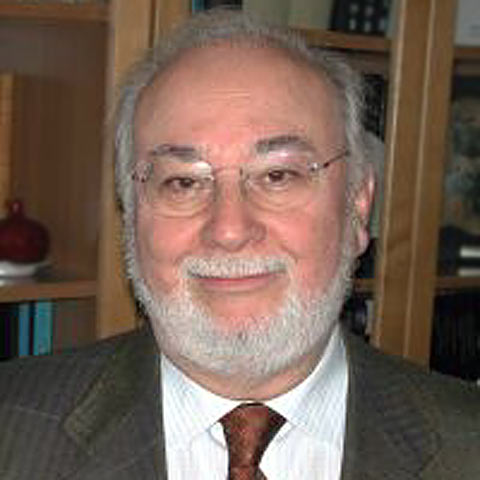
— Salvatore Mancuso Professor, Head of the Department of Obstetrics & Gynecology Catholic University, Rome
“When I first read his thesis on «Placental Hormones», at the early 60ties, I realized that I could not miss the opportunity to be one of his fellows at the Karolinska group. He accepted my application and once in Stockholm I became during 5 years one of his numerous pupils. Now, after 50 years, I can say that Professor Diczfalusy provided an essential turning-point to my life, he has greatly influenced my way of thinking, has instilled the philosophy of research and gave the most important incentive to build up my academic career. Not only he was the perfect mentor in endocrinology and biology, but he greatly contributed to deepen my humanistic culture: yesterday to investigate the early origin of human life and today to search the roots of our western culture, enjoying together the wonderful Greek tragedies. Scientist able to transfer ideas, culture, knowledge and opinions to a multitude of people.”
(Rome, Italy, on the 7th of August 2010)
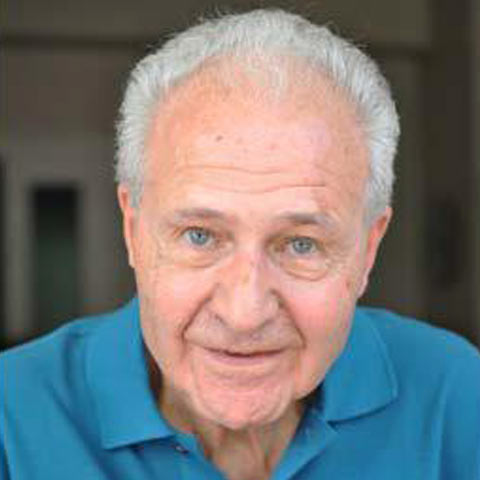
— Edoardo Menini Associate Professor of Applied Biochemistry, Chemistry and Biological Chemistry in the Catholic University of Rome Director of the Hormone Laboratory of the Policlinico Universitario "A. Gemelli". Rome
“A few days ago my close friend Ninny Mancuso told me about a project concerning Prof. Egon Diczfalusy. As you certainly know I was the first «Italian» researcher to work at the Hormonlaboratoriet of the Karolinska Sjukhuset under the direction of Prof. Diczfalusy. In May 1957 I visited Prof. Diczfalusy Laboratory with the intention of spending there a fortnight seeing what was going on in the field of «hormones». To my surprise Prof. Diczfalusy spoke very fluent Italian. As a consequence of an ordinary laboratory incident (in which I was marginally involved) occurred during the last stages of the isolation of 16-oxo-oestradiol from placental tissue by Eva Axelson and Anne Marie von Munsterman I remained in Stockholm over 4 years, until July 1960. At that time the main interest of Prof. Diczfalusy was the development of the new concept of foeto-placental unit which largely depended on the isolation of oestrogens (and other steroids) in foetal and placental tissues and some body fluids. At that time the identification of the isolated steroids was accomplished, among others, by the technique of countercurrent distribution (CCD) a very tedious and time consuming operation as well as unhealthy (one had to manipulate and breathe consistent amounts of toxic volatile solvents). Being myself a chemistry graduate with some knowledge of analysis, I introduced in the laboratory as a criterion of specificity the techniques of paper partition chromatography and paper electrophoresis. I remember that at the beginning Prof. Diczfalusy was very skeptical about the use of these «new techniques» and that it was very hard for me to convince him that it was worthy to try them: Later on these new techniques became standard and CCD abandoned. I mention this to point out how careful Prof. Diczfalusy was about the validity of the laboratory results and the reliability of the methods employed. Prof. Diczfalusy represents for me the person that has introduced me to the field of hormone biochemistry a subject that has been the daily bread of my work as a teacher and as a researcher until my retirement in 2001. From Prof. Diczfalusy I have learned the value of good research and how to make research (what I call the «grammar» of research) although I do not remember having never seen him with a test tube or a glassflask in his hands. For this I am indebted to Prof. Diczfalusy. A wise and highly cultured man as well as a great scientist that considered research a value in itself and a service to mankind.”
(Rome, Italy, on the 8th of August 2010)
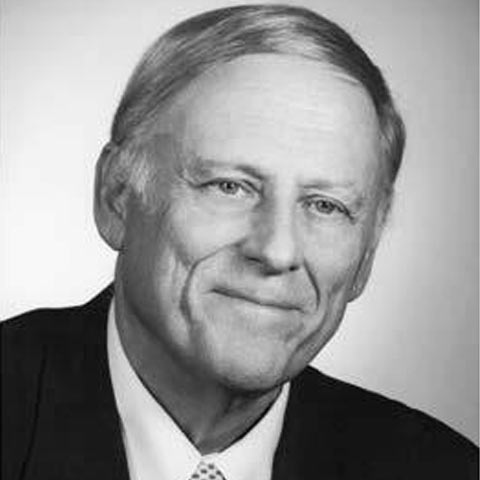
— Herman Adlercreutz MD, PhD, Professor emeritus; born in Helsinki April 10, 1932
“In 1958 I finished my medical studies at the University of Helsinki. My father associate professor Erik Adlercreutz was the first hepatologist in Finland and made me interested in the hyperestrogenism occurring in liver cirrhosis. The only laboratory in Scandinavia measuring estrogens by chemical methods was that of Egon Dicazfalusy in the Department of Obstetrics and Gynecology at Karolinska hospital. Professor Gunnar Birke in the Department of internal medicine introduced me to Dr Egon Dicafalusy, who gave me the opportunity to pursue my ideas by starting to measure estrogens in bile, something that he commented saying that it will be very difficult. Altogether I stayed 34 months in the laboratory (1958-61), finishing the practical part of my doctoral thesis «Oestrogens in human bile» published as a monograph. At my disputation professor Diczfalusy came to Helsinki that I appreciated very much. In this way I learned to know a man with many unusual talents. He is a multi linguist and definitely the best lecturer I ever met. From his lectures I learned very much that I have used in my later life. He could see how various aspects of reproduction may influence the whole world. In addition he has a memory that few can surpass. As an example: During writing of a manuscript in his home I wrote and he dictated practically all references directly from his memory. He also read word by word my whole thesis and taught me at the same time much about writing scientific papers which I have used numerous times. There is no doubt that nobody else has had such a major influence on my whole career. Definition of Egon Diczfalusy: A verbally unusually talented scientist with global perspectives on human life.”
(Helsinki, Finland, on the 9th of August 2010)
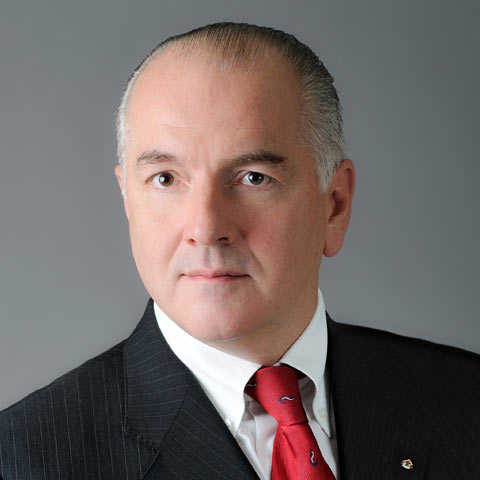
— Tihomir Vejnovic Professor of Obstetrics and Gynecology Medical Faculty, University of Novi Sad, Vojvodina, Serbia. Head of the Perinatology Department, Past President of the Ob&Gyn Section of Serbian Medical Association
“On Himalaya Mountains, there is a spring with streaming water «without gas». If you take a nip from that spring, a legend says that you would become immortal. Many people have tried to reach the spring that cannot congeal, but using the shortcuts they missed the main lead and never reached the «path of the stars.» A Latin proverb says «per aspera ad astra» and that is why I consider that friendship with professor Egon might be a thorny path, but a path that certainly leads to the stars. Our friendship for all these years was a motive for me to gain new acknowledgement, but also new friends and new horizons. In few words - Professor Egon Diczfalusy is Schiller's «Ode an die Freude» for quartetto Vejnovic and me. - Definition in 10 phrases: 1. King of Ronninge; 2. Crown-prince of «Libamay»; 3. Veteran from Stockholm; 4. The Phantom of the Opera; 5. Chardonnay Kovacevic; 6. Formula one fighter-pilot with Corgy; 7. «No problemo» 8. Ziveli! 9. Ziveli! 10. Ziveli! With warm regards, Prof. Dr Tihomir Vejnovic”
(Novi Sad, Serbia, on the 10th of August 2010)
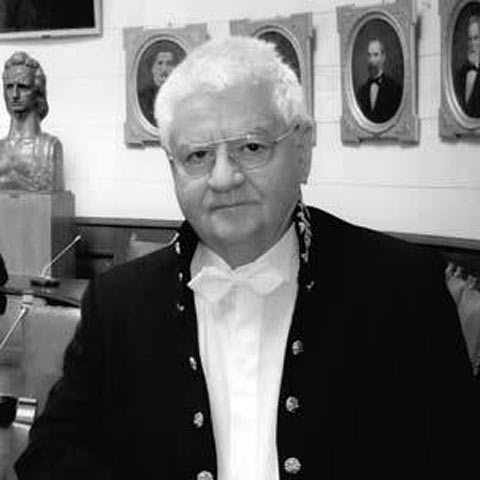
— Ioan Munteanu Profesor Emeritus, Honorary member o Romanian Academy
“In the second half of the 7th decade of the last century, I was a young assistant at the Obstetrics and Gynecology Department of the Faculty of Medicine Timisoara. Back then, my professor, I. Nubert, attentioned me that in our field of research had appeared a new concept. This new concept – the fetal-placentar entity – replaced the old concepts which were sustaining that each segment (the fetus and the placenta) were something completely different and apart. The promoter of this new concept was a Swedish physician by the name Diczfalussy. My professor was sustaining that this Swedish physician must be a Hungarian physician who has moved to Sweden. The concept was completely new and interesting and had captured the attention of the entire obstetrical world. The book published in relation with the new concept (Foetus and placenta – Author Egon Diczfalussy) became the reference book in the obstetrical field in that period. The new concept opened the ways for the perinatal medicine which is today in full development. From the beginning i considered Egon Diczfalussy to be a great scientist, a genius man and I did not allow myself to even think that i could ever meet him and nevertheless become one of his close friends. In 1991 I met Professor Laszlo Kovaks from Szeged, in Singapore with who I become, shortly after that, a close friend and together we established to renew the traditional connections between the Romanian and Hungarian practitioners of obstetrics and gynecology. Those connections were disrupted for a period of 12 years by the dictatorial couple who considered the relations of any kind with our neighbors to be forbidden. In 1993 I organized the first romanian-hungarian meeting of obstetrics and gynecology. At that meeting i invited professor Diczfalussy, who surprised me by accepting the invitation and was the buffer of the meeting. He advised us to continue and to strengthen these meetings. We followed his advice and in the following years we organized alternative meetings of the gynecologists and obstetricians in Romania and Hungary. Even since then, Professor Diczfalussy had the genial vision to advice us to organize meetings grouped on European regions between specialists. In this way we could meet each other and we could become stronger and influence in good the politics in our origin countries. Therefore we could form the organization DKMT (Danube-Cris-MuresTisa), an organization of the Romanian, Hungarian and Serbian specialists, which takes place periodically in Timisoara, Diczfalussy accomplished the reunion of specialists in this part of the Europe. Beside this international organism, professor Diczfalussy formed the foundation Egon&Ann Diczfalussy at which reunion are invited professors from all Europe and USA. For his exceptional career, professor Dicsfalussy was elected in 1994 Honorary Member of the Romanian Society of Obstetrics and Gynecology and received the title Dr. h.c. at the Universities from Timisoara, Cluj, Oradea and Arad. Szeged, Belgrade and Novi Sad. Professor A memorable event was the summer of the year 2008 when I become Emeritus Professor at the University of Medicine and Pharmacy «Victor Babes» Timisoara. At this event, together with other important professors from Europe and other countries, the main guest was Professor Egon Diczfalusy, who sustained a wonderful speech about me. This special relation that i have with Professor Diczfalussy allows me to consider myself a disciple of the great professor and to carry for him feelings of respect and consideration. In 10 words: 1. genious; 2. family man; 3. polyglot; 4. humorous; 5. respectful; 6. intuitive; 7. modest; 8. people oriented; 9. grateful; 10. talented.”
(Timisoaara, Romania, on the 11th of August 2010)
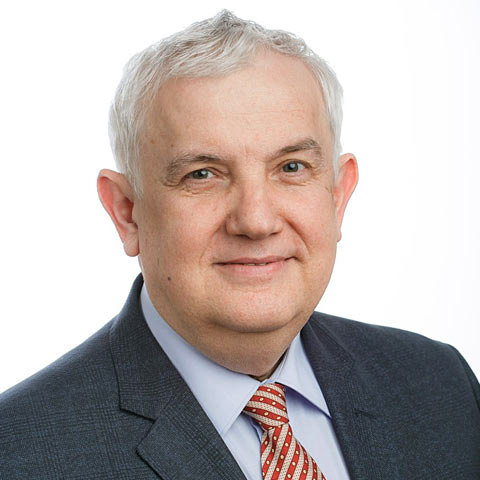
— Gheorghe Furău MD, PhD, Assistant Professor of Obstetrics- Gynecology West University “Vasile Goldiş”, Arad, Romania
“I consider a gift of chance, a twist of fate, the way I met approximately 20 years ago the eminent scientist of whom I read about in almost all my medicine textbooks. It was an honor for me, the university I represent and the city of Arad, to award the title Doctor Honoris Causa, to the distinguished professor, in the presence of many of his disciples and former students, who wished to be present. For some that meant to cross an entire continent or ocean just to be there a couple of hours for their maestro. The message he addressed on this occasion: «Take advantage of me as much as possible», proves the altruistic nature of a great MAN. His results show that through determination a man can make a difference in the journey to the stars. Cited from Senece- Hercules Furens- «Non est at astra mollis, e terries via» (From earth to the stars, there is no flat road). Professor Egon Diczfalusy achieved creating a real school, he himself being a true educator, teacher and mentor for many «students» all over the globe. This altruistic spirit stood at the base of the creation of the «Egon & Ann Diczfalusy Foundation» whose noble objectives, I am convinced, will remain for many years to come, an investment in and for the future generation. Behind the scientist, I have to remark the extraordinary psychologist, in the person of the maestro (and friend) Egon is. In my moments of despair caused by the ones I once considered «my brothers», he comforted me telling me that «If 2% of those you helped in some way remember you in a good way, it is an achievement worth the cost». A man of chosen culture, Egon the artist, in his elegant way, forces you to enter the miraculous world of art, to learn new places, to tie friendships with people from all over the world, who «by chance» were his student. I was impressed by the sheer easiness, the professor communicated with the young generation «in their» and «on their» same language. The qualities of a true pedagogue only prove his devotion to other people, in my opinion, this being the key to the professor’s youth. If I had the possibility to clone only one man for the future generations, this would be no other than the MAN, the scientist, the researcher, the pedagogue, the artist and the forever young, Egon Diczfalusy.”
(Arad, Romania, the 11th of August 2010)
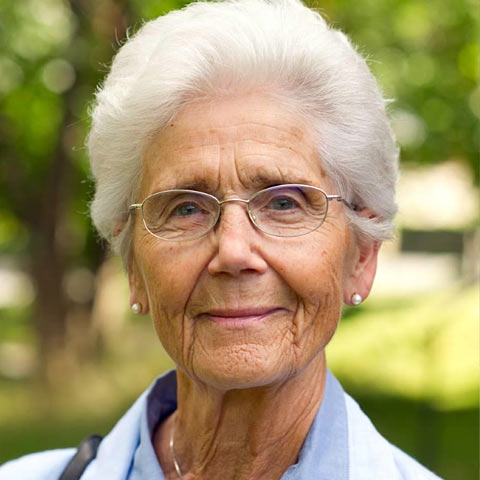
— Kerstin Hagenfeldt MD, PhD, Prof em. Dept of Woman and Child Health, Div of Obst & Gynecol. Karolinska University Hospital and Karolinska Institutet, Stockholm, Sweden
“What does Egon represent for me? He was my tutor in research. I was fortunate enough to spend four years in his lab in an atmosphere dominated by his quest for knowledge, his immense devotion to science, always at hand for discussions on reproductive endocrinology, laboratory techniques, animal experiments or statistics He introduced us fellows to his wide global network of colleagues all over the would- in my case specifically to the WHO Special Programme of Research, Development and Research Training in Human Reproduction: A programme that Egon initiated together with professor Sune Bergström and Ulf Borell from the Karolinska Institutet. Since then I have had the pleasure to work with this programme during more than35 years. For this I will always be deeply grateful to Egon as this work has been very important in my professional life. To describe him in ten words are hard: Let me try: - in science: devoted, knowledgeable, extremely well- read ( in a time before the internet when you actually had to read publications and correspond and discuss by mail with colleagues !!) - to families and friends (including former fellows): always concerned, generous with advice and support - in leisure times. a connoisseur on food and wine - in life: an old-fashioned gentleman.”
(Stockholm, Sweden, on the 12th of August 2010)
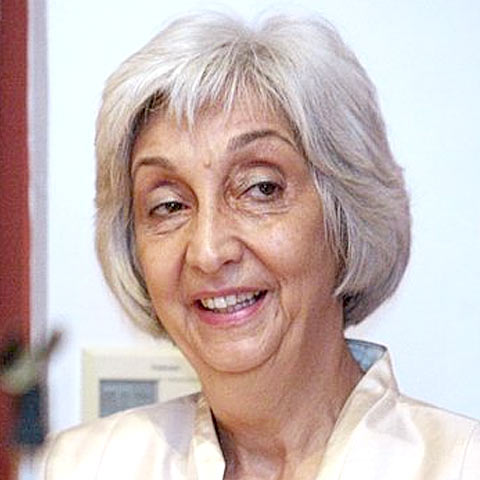
— Katalin Barabas Habil, MD, PhD, Associate professor, head of University of Szeged, Faculty of Medicine, Department of Behaviour Sciences
“What does Professor Diczfalusy mean to me? I have known Professor Diczfalusy personally for four years. During our first discussion that was on the moral basis of scientific research, he convinced me that I had met an exceptional personality. This meeting has developed into a nice relationship that involves discussions and correspondence about the medical science and the history of medicine, providing me experiences in music and the fine arts pervaded by humor and containing several cultural references. His excellent organizing ability, physical strength and indefatigable social activity elicited my deepest respect and admiration. If it is possible to characterize somebody in the 21st century as the Renaissance man, he is the very one. He is a real humanist and a polyhistor. Tradition and progress is mixed in a peculiar proportion in him. He is experienced both in the field of modern scientific achievements and in the world of the Old Greek dramas. His love for operas is not unintentional as this is the very genre that presents man in the most complex way, and he is mostly interested in the human being. Professor Diczfalusy has brought me a message from a world that is very much desired by me, the scale of values and the style of which is much over our hurrying, globalized world. I consider the gift of Fate that I have the privilege of knowing him. Thank you. If I had to characterize the personality of Professor Diczfalusy, the first word that comes into my mind would be Elegant. He has elegant thoughts, elegant taste, elegant physical appearance and elegant life style; he is an exceptional man. Katalina the Second.”
(Szeged, Hungary, on the 12th of August 2010)
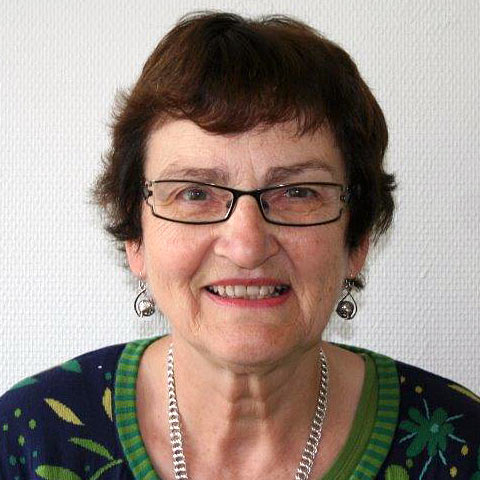
— Britt-Marie Landgren MD, PhD, Professor of Obstetrics- Gynecology Karolinska University Hospital and Karolinska Institutet, Stockholm, Sweden
“I did spend four years in Egons lab, working with my thesis, he was my tutor. After I had finished my PhD, our collaboration continued for 15 years until Egons retirement from Karolinska Institutet. We published a number of papers on the menstrual cycle, contraception and infertility. After his retirement I continued with research using what he had taught me about how to do research in the field of human reproduction. We have now been friends for more than 40 years.”
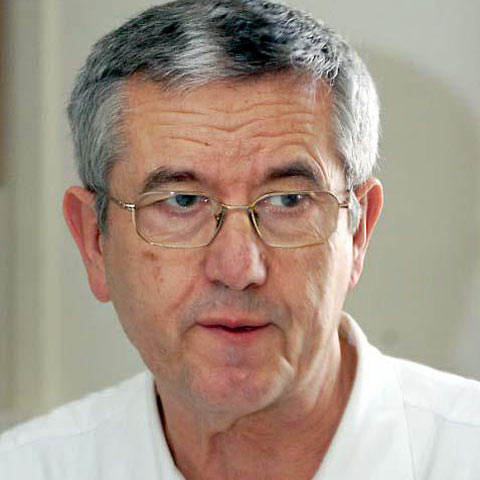
— Gyorgy Bartfai Professor University of Szeged Department Ob. & Gyn.
“I spent more than 1 year in Professor Diczfalusy's Lab, at the Karolinska Institute, Stockholm. I was lucky enough to be there in the «golden age» when he was one of the leading figures in science on the field of reproductive health, as well as the eminence grise of the WHO. Professor Egon Diczfalusy is my father in research. I never forget his frequent citation by Zrínyi «Good fortune, nothing else». However, I would like to continue with another citation by Pasteur: «Chance favours only the prepared mind.» He is my role model of a committed scientist obtaining outstanding professional results yet remaining an uncompromising humanist always with a good sense of humor and staying sensitive toward others.”
(Szeged, Hungary, on the 16th of August 2010)
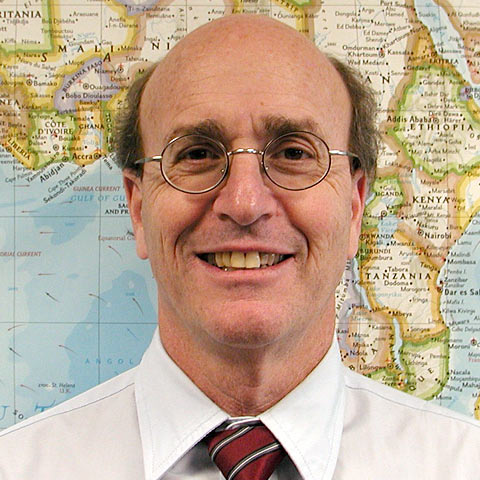
— Jeff Spieler Senior Technical Advisor for Science and Technology Office of Population and Reproductive Health
“What does Professor Egon Diczfalusy represent for me? A world class leader in research in human reproduction who has mentored and trained many of the other world leaders in family planning, reproductive health and research from all over the world. - To define him in 10 words. A scholar, friend and renaissance man with the best quotes. One story - Egon and I spent a fabulous week together in Milan in the late 90s as guests of the Rockefeller Foundation editing the Supplement to the International Journal of Gynecology & Obstetrics on «Contraception 21 - The Promise of Public/Private Sector Collaboration» that resulted from a series of three Bellagio Conferences convened by Mahmoud Fathalla and the Rockefeller Foundation. While we worked hard from 8:30 AM to 12:30 PM and from 2:00 - 6:00 PM, we had great lunches and fabulous dinners with marvelous Italian wines every evening, followed by a nice walk. Egon had the expense account and it was great to be his "guest" for lunch and dinner and to share our work and non-work lives with each other.”
(Geneva, Switzerland, on the 16th of August 2010)
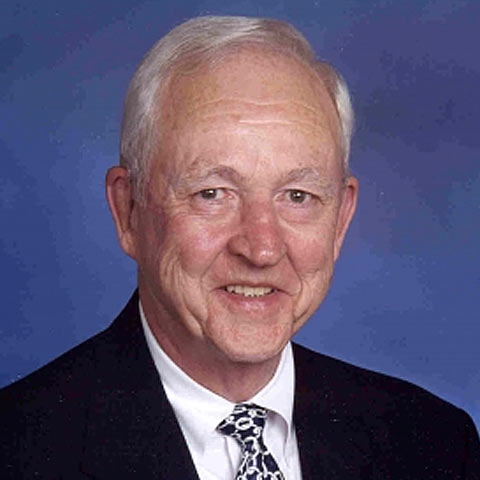
— Emmet Lamb Professor Emeritus Ob&Gyn Stanford University
“Your two questions -- 1. What does Professor Egon Diczfalusy mean to you? and 2. How would you define him in 10 words? -- posed quite a challenge and I spent several enjoyable days exploring the proper answers. Egon Diczfalusy was my most influential mentor and advisor. I officially retired fourteen years ago from a long academic career but am still slightly active in research. Throughout those years I have profited from my time with him even though the minutia of steroid metabolism have long ago left me. I was in the Hormone Laboratory for a little over a year in 1965-66 during the peak years of Egon’s work on the fetoplacental unit and contributed one small piece of the jigsaw puzzle he was solving. In his 1997 book The Contraceptive Revolution: an era of scientific and social development, Pantheon, page 7, there is a list of 35 scientists who worked in the lab at that time. Fourteen were in Stockholm during the time I was there and it is likely that each had a publication to show for their efforts and some had many. The first two words, therefore, in my litany of adjectives to describe him are organized and indefatigable as a research mentor. He found time to meet with each of us to discuss the state of our project on a regular basis and reviewed our data with unflagging enthusiasm and interest. He was a polyglot, speaking often to his students in their native language. Occasionally when he would find himself using words from two different languages of the half dozen or more in which he was fluent, he would say «Oops» and twirl an imaginary dial to switch his brain and tongue from one to the next. Egon was also a polymath, a renaissance man with an encyclopedic knowledge in many fields. Every lecture and every publication began with an apt quotation. He must have memorized many of these since he also sprinkled his every day conversation with quotations. I have suspected that he used his long late evening commute time to memorize quotes or perhaps to read books by the likes of Blaise Pascal. He was demanding, requiring that we meet rigid standards. Recrystalizing to constant specific activity the steroids we isolated from various tissues and fluids obtained from subjects who had received injections of a radioactively labeled precursor condemned us to many hours in the weight room in those days of mechanical, not electronic, balances. This did not make up a large proportion of the time I spent on my project but it was lonely grunt work which I dreaded. Much of the other time was fun with 14 other postdocs with whom to socialize. He was gracious in occasionally entertaining us for a noon meal of corn flakes and fil mjolk in his office with his chief technologist (was her name Leda?) or for an evening feast of reindeer meat and all the Swedish fixings with his wife Anna at his home in the distant suburbs. He was polished and impeccably dressed, a suave, and urbane European intellectual, a delightful conversationalist. He was trusting once he came to know you. He even sent his son Bo to live for a summer with us when we had returned to California. I was delighted to find forty five years later that the shy teenage pianist who joined our family for a few months had become a very important figure in green energy in Sweden, or so a Google search revealed.”
(California, USA, on the 17th of August 2010)
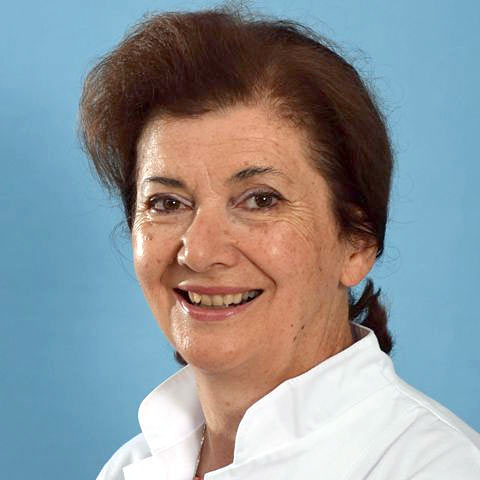
— Nevena Secen Prof of Internal medicine, ex-Vice dean for foreign communications and foreign students, Faculty of medicine Novi Sad, Vojvodina-Serbia
“It is a great privilege to know such a huge person as Prof Egon Diczfalusy is with his outstanding personality,energy and fruitful life. It is amazing inspiration for us! Dear Prof Egon Diczfalusy, we wish you a very happy and healthy birthday and may you have many, many more! Yours, Very truly, Nevena Secen.”
(Novi Sad, Serbia, on the 17th of August 2010)
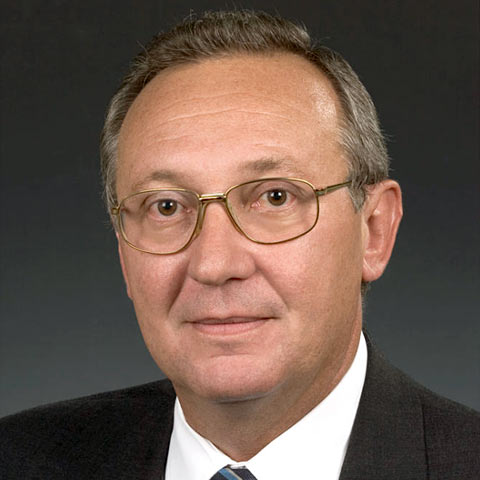
— Attila Pal Professor Ob&gyn University of Szeged
“He is not just a pure scientist and an ideologist but a person who has recently shown philosophical characteristics also.”
(Szeged, Hungary on the 18th of August 2010)
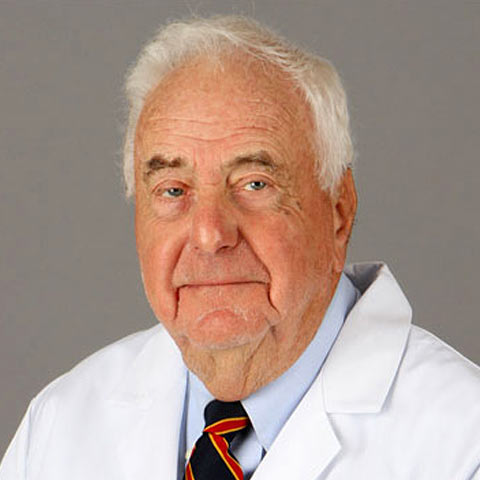
— Daniel R. Mishell Jr. MD, Professor, Department of Obstetrics and Gynecology Keck School of Medicine University of Southern California Los Angeles, California
“Professor Diczfalusy has been a close friend and colleague of mine for nearly 50 years. I have read his marvelous books on modern contraception and attended many of his outstanding lectures at various international symposia. I have also been present at several meetings of the WHO which were chaired by Professor Diczfalusy. I learned from his actions at these meetings how to develop consensus and conclusions from a diverse group of scientists from many different nations. I utilized his methodology when I needed to chair scientific meetings and am grateful for having the opportunity to learn from this master. In addition to science, Egon Diczfalusy taught me how to enjoy good food and fine wine. I am forever grateful that he taught me that wines from Burgundy were superior to those from Bordeaux. I recall fondly the erudite conversations we had at many outstanding dining events. The ten words I would use to define Egon Diczfalusy are brilliant, sophisticated, erudite, charming, cosmopolitan, elegant and an outstanding educator, mentor and gourmand. I wish to extend my special congratulations on the occasion of his ninetieth birthday.”
(Los Angeles, USA, on the 18th of August 2010)
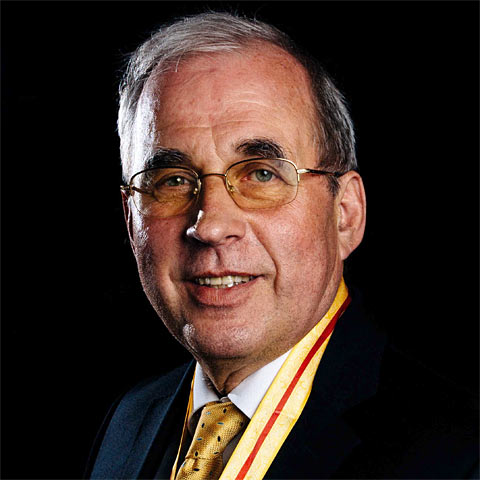
— Thomas Rabe Senior consultant, Department of Gynecological Endocrinology and Reproductive Medicine, University Women`s Hospital Heidelberg, Germany. President of the German Society of Gynecological Endocrinology and Reproductive Medicine.
“Senior consultant, Department of Gynecological Endocrinology and Reproductive Medicine, University Women`s Hospital Heidelberg, Germany. President of the German Society of Gynecological Endocrinology and Reproductive Medicine. Our friendship last more than 30 years. When Professor Josef Zander (at this time in Cologne/Germany) discovered progesterone in the peripheral blood, on of his technical assistants, Mrs. Annemarie von Münstermann had been trained at Egon`s lab at the Karoliska Institute. Later on she worked with Zanders assistent and later chief of the Department of Gynecological Endocrinology and Reproductive Medicine at the Women`s Hospital in Heidelberg, Professor Benno Runnebaum, who discovered the steroid exchange in the feto-placental unit (progesterone to 20α-dihydroprogesterone and vice-versa). In Benno Runnebaum`s group I studied the regulation of placental steroidogenesis at molecular level again with the technical assistant Mrs. Annemarie Bierwirth (borne von Münstermann). Thank you also Benno, for the wonderfull opertunities in research and clinics in your group and for our long standing friendship. For me Egon was all the time a father-like mentor in science, publishing books and organizing world wide conference in contraception together with WHO. «Outstanding scientist, brilliant analyst of past and future global development with view to need of mankind. Unique global player in gynecological endocrinology and reproductive medicine fighting lifelong for Women`s Health. Grand senior, multilingual gentleman with multicultural behaviour, homo sapiens extraordinarius.»”
(Heidelberg, Germany, on the 30h of June 2015)
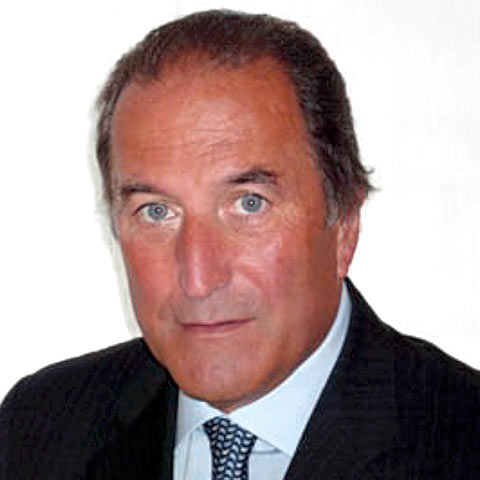
— Riccardo Marana Director of Gynaecological Oncology at the Catholic University of Sacred Heart, Rome, Italy
“My two year stay at Karolinska, from 1978 to 1979, represents a milestone in my professional and personal preparation. It greatly influenced my growth and my career in the years to follow. It was my first time studying abroad for such a long period and my knowledge of English was poor. I immediately felt welcomed in Prof. Diczfalusy’s laboratory, as if part of his big family. There I learned, starting from the bench, all that is fundamental to become a knowledgeable researcher. Under his supervision, as well as that of his team, I cultivated a critical eye, an intuition for research and the ability to develop a project and write papers. I still remember fondly the staff reunions during tea, often in his company. Prof. Diczfalusy taught me to have faith in myself and in my capabilities, and demonstrated appreciation in my work. I greatly admired his humanity and empathy that always accompanied his indisputable leadership. Even though I was stimulated by pure research and was offered to join his team, I realized that my real interest was in gynaecological surgery. Therefore, I returned to Rome, applying my acquired knowledge in clinical research. No doubt, Prof. Diczfalusy’s Letter of Recommendation led the way to many opportunities abroad, especially in the U.S. Since my years at Karolinska, Prof. Diczfalusy has always been near and genuinely interested in my achievements, both academic and personal. If I am where I am today, it’s thanks to his precious teaching, guidance and support. I am grateful having him as a mentor and friend.”
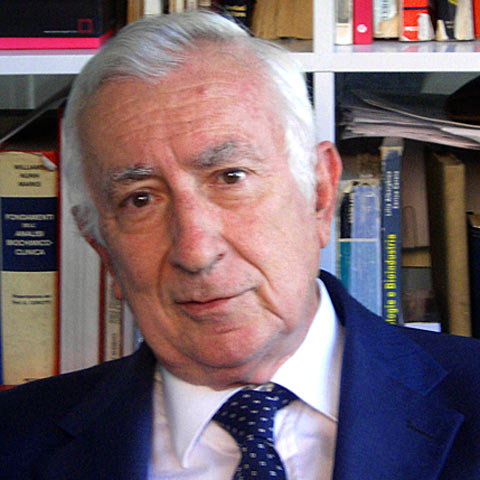
— Alessandro Pala MD, PhD, Professor at at the Catholic University of Sacred Heart, Rome, Italy
“Egon represents for me a model of clearness of mind. Trying to define him, I would say he is able to teach his students how to give Invaluable and true pieces of scientific information.»”
(Rome, Italy, the 21th of August 2010)
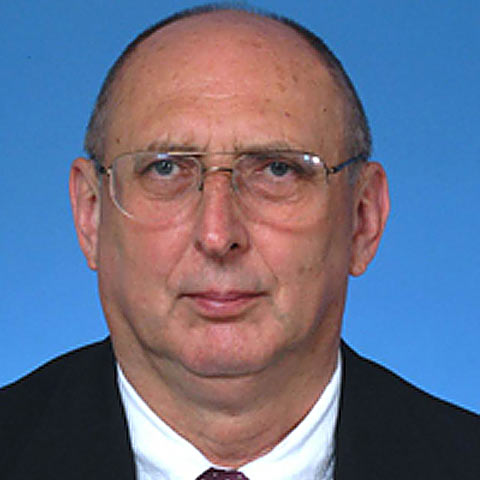
— Peter Petrusz Professor of Cell and Developmental at the School of Medicine, University of North Carolina at Chapel Hill External Member of Hungarian Academy of Sciences
“Professor Diczfalusy belongs to a breed of scientists that, unfortunately, is becoming nearly extinct. He possesses the rare combination of extraordinary talent, an almost super-human memory, power of reasoning, capacity for work, high culture, unfailing moral compass, and a compassionate, deeply human, and politics-free philosophy that only the greatest, if anyone at all, can match. It has been one of the greatest honors of my life to be able to work, high culture, unfailing moral compass, and a compassionate, deeply human, and politics-free philosophy that only the greatest, if anyone at all, can match. It has been one of the greatest honors of my life to be able to work under his guidance and supervision for almost five years during the late 1960s and until 1971. His name is forever preserved in the scientific literature but I hope that we, who had the good fortune to be close to him personally, will be able to pass on some of what we learned from him (and what we learned goes way beyond «simple» science) to future generations. In 5 words only I would say about him: the best mentor I ever had.”
(North Carolina, USA, on th 2th of August 2010)
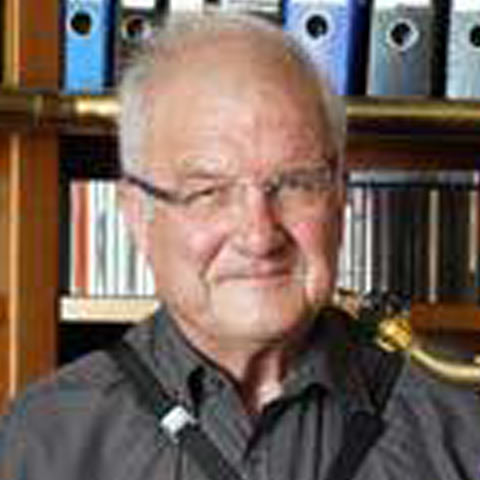
— Michael Oettel Prof. Dr. med. vet. habil
“It was 1976, when I met Egon Diczfalusy first time. As a member of the Human Reproduction Program (HRP) of the WHO he visited (together with Alexander Kessler) the Central Institute for Microbiology and Experimental Therapy (ZIMET) at Jena (GDR) in which I headed the group of experimental endocrinology. Our field of work was focussed on the endocrine profile of new estrogens/anti-estrogens and progestins/antiprogestins coming from the chemical synthesis group of Kurt Ponsold and from the steroid biochemistry headed by Kurt Schubert. In addition to this, we were engaged on the physiology and pharmacology of the nidation phase and on new approaches for male fertility control. Egon was interested immediately and proposed a collaboration with the HRP. With his special feeling for complicated West-Eastrelationships he found a way for the regularly participation of Kurt Schubert and me on the meetings of two Task Forces of the HRP. It was the begin of my work over 7 years for the WHO. My entry into the western scientific world was for me fascinating because I have had the opportunity to present our results twice per year and discuss these findings with well-known international experts. One of the children of this fruitful period was the progestin STS 557, today known as dienogest. And every time, Egon was my skillful teacher and experienced adviser. From the point of view for the concept and methodology his scientific work was every time on top. Therefore, his advice cannot be overestimated. Egon’s worldwide scientific and personal network was very useful for me till today (despite my lousy English). It’s a great honour to feel as a member of this outstanding family. After my time at the WHO, Egon not let me out of his sight. But, a second intensive period of collaboration started after the falling of the wall in Germany. Main topics were Women’s Health Care in a more broadened sense, the endocrinology of aging males, and the socio-cultural background of the aging society in different regions and countries of the world. Aging without to feel aged - Egon Diczfalusy per se is the best example for the realization of this thesis. Also, in this time I became a lot of knowledge of human nature from Egon, especially for differentiating between unpretentious creative people and the hyperactive, loud dazzlers. But Egon is not only a successful scientist. He is much more. I’m impressed about his broad interests and immense education and refinement on history, politics, fine arts including music and the visual art of different civilizations. I’m remembering on a lot of outstanding concerts and exhibitions which I visited together with him. He was also interested to hear what was new with me and my saxophone at the JazzScene. On the occasion of a scientific symposium dedicated to Egon’s 80th birthday in Berlin, he was delighted about a saxophone-concert. Unforgettable were the visits in Rönninge (sometimes together with my wife Gisela), on which Egon presented his abilities as a firstclass host and cook before starting the good talks also with his wife Ann. Finally, I would like to remember on a common book that we – with a twinkle in one’s eye – published 2002: «To Our Optimopessimist Friends – Selection of quotations from useful and some less useful presentations.» This special volume has been prepared only in 16 copies – a true rarity! Egon, thank You for steering so deeply my professional life!”
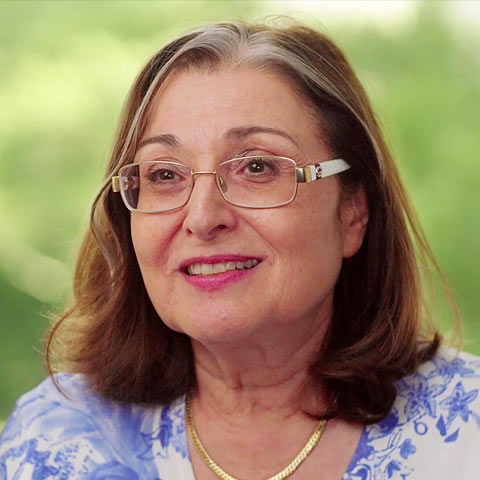
— Regine Sitruk-Ware Adj. Professor Rockefeller University Distinguished Scientist, The Population Council, New York, NY, USA
“All my warmest wishes to Professor Egon Diczfalusy whom I know since many years as a bright scientist, humanitarian and a visionary for the future. His contribution to research and the betterment of reproductive health of the less developed countries and the most vulnerable populations has been immense. I feel very honored and privileged for having met him and been asked to lecture in his honor. All my congratulations for his wonderful achievements.”
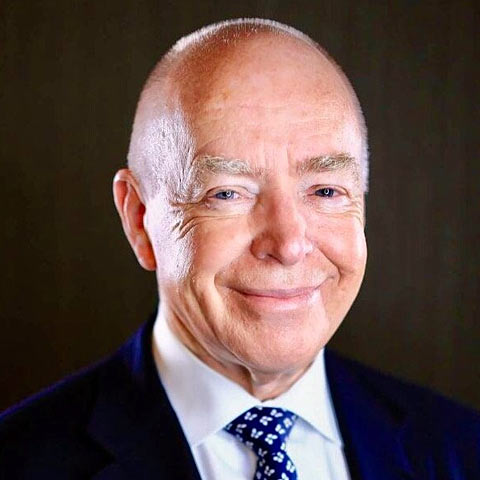
— Rod Baber Adj. Professor Rockefeller University Distinguished Scientist, The Population Council, New York, NY, USA
“All my warmest wishes to Professor Egon Diczfalusy whom I know since many years as a bright scientist, humanitarian and a visionary for the future. His contribution to research and the betterment of reproductive health of the less developed countries and the most vulnerable populations has been immense. I feel very honored and privileged for having met him and been asked to lecture in his honor. All my congratulations for his wonderful achievements.”
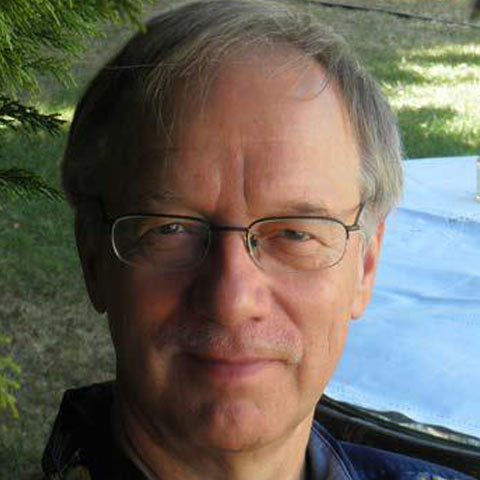
— Ilpo Huhtaniemi MD, PhD, MD hc, FMedSci Professor of Reproductive Endocrinology Institute of Reproductive and Developmental Biology Imperial College London
“I would like to join your numerous friends and colleagues in congratulating you on your birthday. I came across your name for the first time in the late 1960's, when I as a medical student was working on my thesis on steroid metabolism in the human fetus. Your numerous seminal publications, and the concept of the fetoplacental unit that you had created, formed the corner stone of my thesis and much of the research I carried out thereafter, some of it as postdoc of your student Bob Jaffe. I sent you a copy of my thesis in 1974 and received from you immediately a warm and friendly thank you. It was only somewhat later that we met personally, first in congresses, then in connection with WHO and the Schering/Rockefeller AMPPA Research Network, and quite a number of times in various events held in your old home town Szeged. I have always admired your visionary scientific career in the quest for improving the wellbeing of mankind. I am ever grateful for the opportunity to have learnt to know you. With all good wishes for health and happiness.”
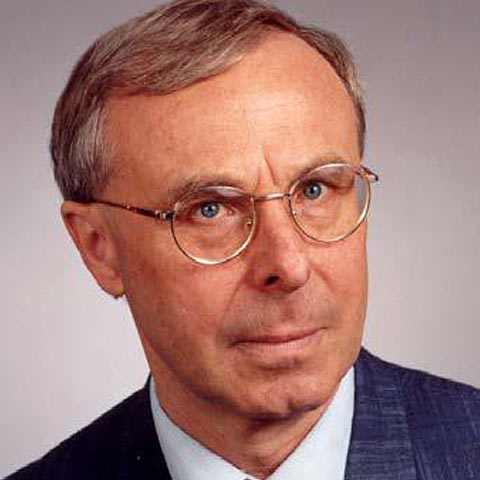
— Alfred O. Mueck MD. PharmD. PhD. Prof. of Experim. Endocrinology and Clinical Pharmacology Dr. med. Dipl. Biochem. Dr. rer. nat. University Women's Hospital of Tuebingen, Germany; Dept. Endocrinology and Menopause, Head, Research Centre of Women's Health, Baden-Wuerttemberg, Section Gyn.Endocrinology and Menopause, Head and Beijing OB/GYN Hospital, Capital Medical University, Honorary Director and Professor of the Dept.Endocrinology, of the Menopause Centre and of the Fertility Protection Centre Beijing, China
“I want to send my greatest thanks to Professor Egon Diczfalusy for all his scientific work, for the most excellent lectures I ever have heard, that he has being teacher and mentor of students and physicians all over the world. Starting my medical work regarding endocrinology and reproductive medicine also now in China, many friends here tell me that he also has strong sympathy towards Asian people and cultures. He helps us to make bridges, not only in medicine. I hope this will continue for many years.”
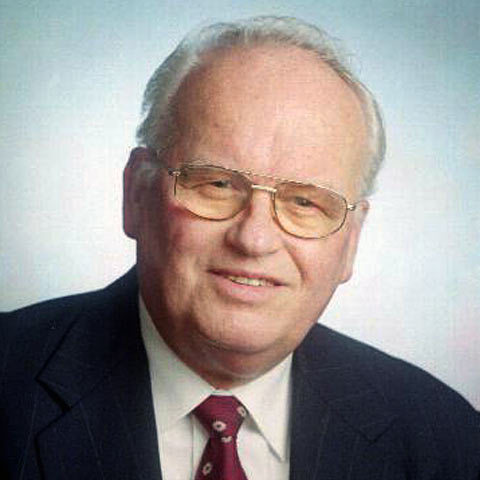
— Adolf Eduard Schindler Prof. Emeritus University of Essen, MD, PhD. Former chairman University Womens Clinic, Essen
“Director Institute for Medical Research and Education, Essen Through personal exchange with scholars of Prof. Diczfalusy (for instance R. Pion), personal contact at Int. Scientific Meetings (such as Serono Symposia), Prof. Diczfalusy had direct or indirect tinfluenc4 on my scientific work in Gynecological Rndocrinology. I am happy to contribute a paper to the special issue celebrating Prof. Diczfalusy’s 95th. Birthday and wish him all the best for the future.”
...